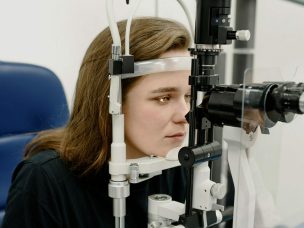Neuromyelitis Optica Spectrum Disorder
Satralizumab in AQP4-IgG-Seropositive Neuromyelitis Optica Spectrum Disorder
Medically reviewed by Dr. Kimberly Langdon Cull, M.D. on August 25, 2023 This randomized controlled trial demonstrated that satralizumab has long-term efficacy in treating AQP4-IgG+ NMOSD with a consistently low annualized relapse rate. Satralizumab is an interleukin 6 (IL-6) receptor inhibitor that works by decreasing protocol-defined relapse (PDR) risk in patients diagnosed with neuromyelitis optica...
Adjudication Committee Performance and Attack Identification Process in N-MOmentum Trial
Medically reviewed by Dr. Kimberly Langdon Cull, M.D. on August 5, 2023 The adjudication of attacks in neuromyelitis optica spectrum disorder patients was robust and associated with elevated levels of sGFAP and MRI lesion correlates. The N-MOmentum trial evaluated the safety and efficacy of inebilizumab in neuromyelitis optica spectrum disorder (NMOSD) patients. In an analysis...
Dementia in Neuromyelitis Optica Spectrum Disorder and Multiple Sclerosis
Medically reviewed by Dr. Kimberly Langdon Cull, M.D. on August 5, 2023 This study found that patients with multiple sclerosis and neuromyelitis optica spectrum disorder have an increased risk of all forms of dementia. Both neuromyelitis optica spectrum disorder (NMOSD) and multiple sclerosis (MS) patients exhibit cognitive impairment; however, the risk of dementia in these...
Effects of NMOSD Relapse on Disability and Quality of Life
A single disease relapse in neuromyelitis optica spectrum disorder is associated with a worsening of disability and health-related quality of life outcomes; therefore, implementing relapse prevention measures is crucial to improving long-term outcomes. Multiple relapses in patients suffering from neuromyelitis optica spectrum disorder (NMOSD) render them susceptible to long-term disability and poor health-related quality of...
Rituximab vs. Oral Immunosuppressive Therapies for NMOSD
This study demonstrated the relatively greater efficacy of rituximab for preventing relapses in neuromyelitis optica spectrum disorder patients than administering oral immunosuppressive agents. Neuromyelitis optica spectrum disorder (NMOSD) is an inflammatory autoimmune disorder associated with high levels of disability and relapses. Despite the high disease prevalence in this population, Black patients are consistently underrepresented in...
Efficacy and Safety of Monoclonal Antibody Therapy in Patients With NMOSD
Off-label and approved monoclonal antibodies are associated with a significantly lower risk of relapse compared to standard treatments. Off-label monoclonal antibodies can be utilized in resource-limited settings. Neuromyelitis optica spectrum disorder (NMOSD) is an inflammatory demyelinating condition involving the central nervous system (CNS). Both off-label and Food and Drug Administration (FDA)-approved monoclonal antibodies (mAbs) are...
Complement Biomarkers Reflect the Pathological Status of NMOSD
Complement biomarkers, including complement factor H (CFH), Ba, and sC5b-9, present in the peripheral blood of neuromyelitis optica spectrum disorder patients, can aid in understanding the disease’s status. The complement system is implicated in the pathogenesis of neuromyelitis optica spectrum disorder (NMOSD). Recently, eculizumab, a humanized anti-C2 monoclonal antibody, was utilized in treating neuroimmune diseases....
Impact of Dysautonomia on the Quality of Life in NMOSD
Severe dysautonomic symptoms in patients suffering from neuromyelitis optica spectrum disorder are associated with poor quality of life. Management of these symptoms can facilitate a better quality of life for these patients. Neuromyelitis optica spectrum disorder (NMOSD) is an inflammatory condition that involves the central nervous system (CNS), and its pathogenesis is based on the...
Latest Advancements in Neuromyelitis Optica Spectrum Disorder Treatment
Prompt and accurate diagnosis and treatment of NMOSD aid in restoring patients’ visual and neurological functions in the acute stage of the disease. The novel strategies include the administration of biologics and monoclonal antibodies. Neuromyelitis optica spectrum disorder (NMOSD) is a rare chronic autoimmune disorder primarily based on the involvement of the optic nerves and...
More Medical News














